Are you looking to get a tattoo but wondering why they are so expensive? It can be hard to understand why tattoos cost so much, especially if you’re new to the world of body art. In this article, we’ll take a comprehensive look at the factors involved in why tattoos are so expensive. We’ll also discuss how you can save money when getting a tattoo.
Contents
Factors Affecting Tattoo Prices
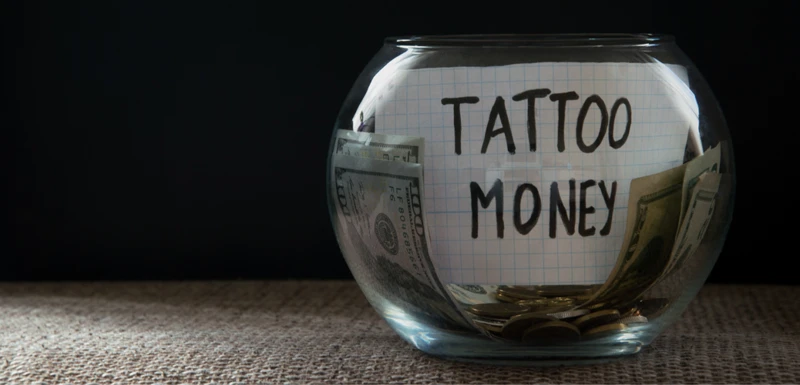
The price of a tattoo can vary widely depending on several factors. The size of the tattoo, the complexity of the design, the experience of the artist, the location of the tattoo, the type of ink used, and the time required to complete the tattoo can all affect the final cost.
Size: The size of the tattoo is one of the biggest factors in determining its price. Generally, the larger the tattoo, the more expensive it will be. This is because larger tattoos require more time and supplies to complete.
Design Complexity: A simple design, such as a small symbol or an initial, may cost less than a complex design with multiple elements. This is because a more complex design requires more time and effort to complete.
Artist Experience: Prices for tattoos can also vary depending on the experience of the artist. Generally, experienced artists charge more than those with less experience.
Location: The location of the tattoo can also affect its price. Tattoos on the face, neck, or hands may cost more than those on other parts of the body. This is because these areas are more sensitive and require more care when being tattooed.
Ink Type: The type of ink used can also affect the price of a tattoo. Some ink types, such as organic inks, may cost more than others.
Time Required: The amount of time required to complete the tattoo will also affect its cost. Generally, the more time it takes to complete the tattoo, the more expensive it will be.
All of these factors should be taken into consideration when determining why tattoos are so expensive. Understanding the factors involved can help you to make an informed decision about the cost of the tattoo and the best way to get the tattoo you want.
Artist’s Skill Level and Reputation
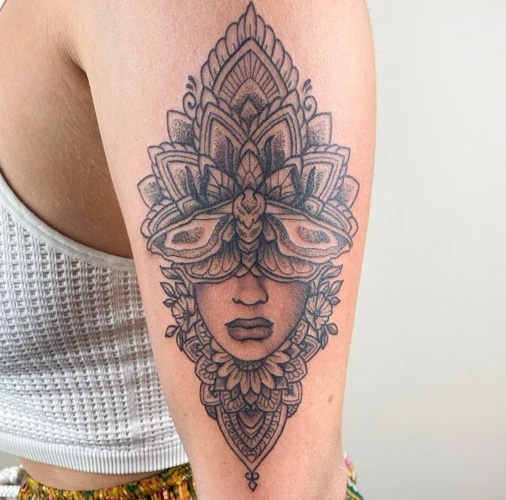
- Skill Level: An artist’s skill level is one of the major factors that affects the cost of getting a tattoo. The more skilled an artist is, the higher the cost. This is because the artist will have to spend more time perfecting the design, thus the cost of labor increases.
- Reputation: Artists who have a good reputation in the tattoo industry will generally charge more than those who do not. This is because they have established themselves as experts in the field, and customers are more likely to trust them with their tattoos. Additionally, reputable artists tend to have more experience and can create more intricate designs, which also increases the cost.
Tattoo Placement on the Body
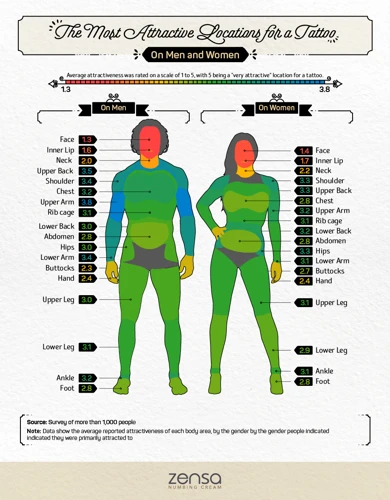
Tattoo placement is an important factor that affects the cost of a tattoo. Generally, the more difficult the placement of a tattoo, the more expensive it will be.
Areas of the body that are difficult to tattoo:
| Body Area | Difficulty Level |
|---|---|
| Armpit | High |
| Behind the Ear | High |
| Hands | High |
| Feet | High |
| Inner Lip | High |
| Ribs | High |
| Neck | Moderate |
| Arms | Low |
| Legs | Low |
| Back | Low |
Tattoos in harder-to-reach places require more skill and tend to take longer to complete. As a result, they are more expensive than tattoos in areas that are more easily accessible. Additionally, some parts of the body may be more sensitive, making the tattooing process more uncomfortable and expensive.
Complexity and Details in Tattoo Design
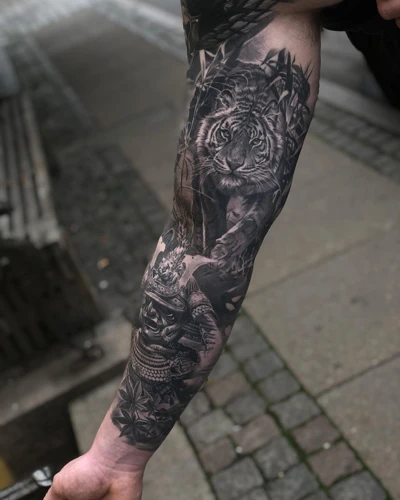
- Size: The larger the tattoo, the more expensive it will be. This is because a larger tattoo requires more ink and more time to complete.
- Design: More detailed designs, such as those with multiple colors or complicated patterns, will require more time to complete and thus will be more expensive.
- Detail: Tattoos with a lot of detail or shading will be more expensive as they require a skilled artist to apply the ink.
- Location: Tattoos on certain parts of the body, such as the face or hands, are more expensive as they are more difficult to reach and require more precision.
Tattoos can be expensive for many reasons, but the main factor is complexity. A more complex design requires more time and skill from the artist, and therefore will cost more. This can include things such as the size of the tattoo, the design, the amount of detail and shading, and even the location on the body. All of these elements can contribute to the cost of the tattoo.
Time Required for the Tattoo
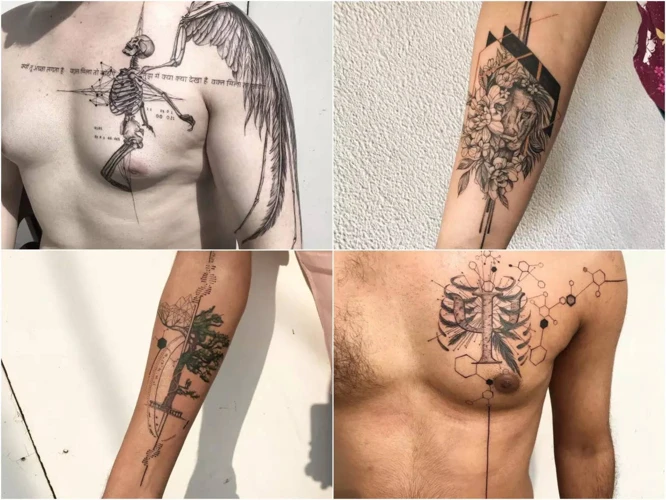
Tattoos take a considerable amount of time to complete. The time required to complete a tattoo depends on the size and complexity of the design. A small tattoo may take only a few hours to finish, while a large and detailed tattoo may take several days or weeks. Additionally, the artist must spend time creating the design and preparing the tools and supplies for the tattoo. All of this time adds up and contributes to the cost of the tattoo.
Quality of Tattoo Inks and Needles Used
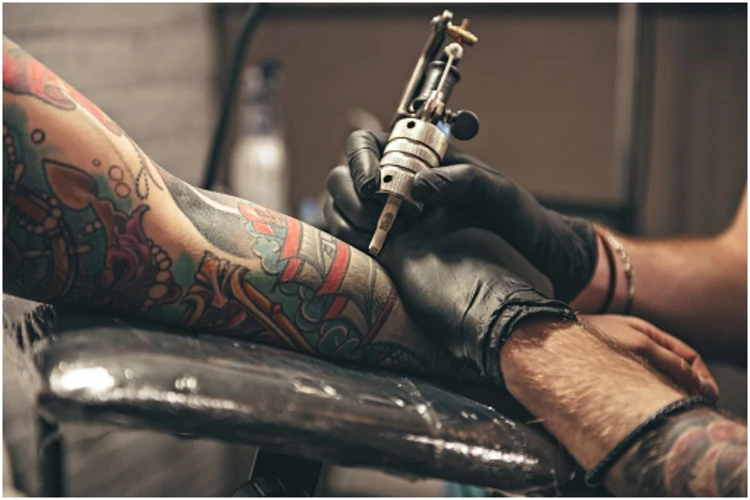
Tattoo inks: Tattoo inks are made up of a variety of ingredients, such as pigments, preservatives, and carriers. The quality of the pigments and other ingredients used in the inks can vary greatly between brands and manufacturers, resulting in different prices and effects. The quality of inks used is an important factor in determining the cost of a tattoo.
Tattoo needles: Tattoo needles are made of either stainless steel or disposable plastic, and come in various sizes. The size of the needle depends on the type of tattoo being done, as well as the preferences of the artist. The quality of the needles used is also an important factor in determining the cost of a tattoo, as higher quality needles result in a better and longer-lasting result.
| Type of Needle | Quality | Price |
|---|---|---|
| Stainless Steel | High | Expensive |
| Disposable Plastic | Low | Cheap |
Tattoo Aftercare
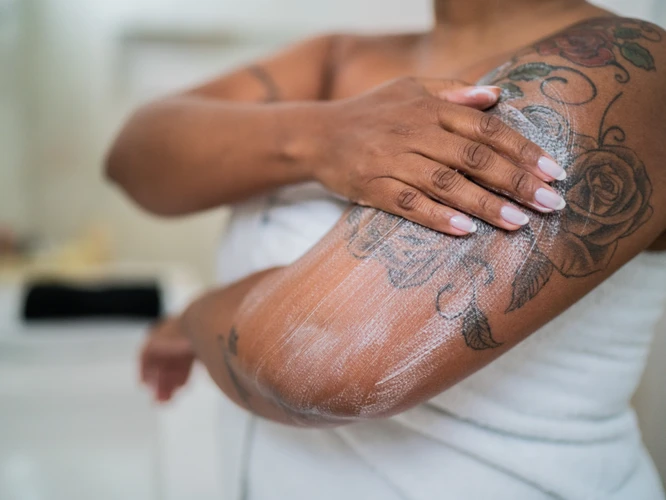
Taking Care of Your New Tattoo – Aftercare is essential for maintaining the longevity and clarity of your tattoo, and should start immediately after the tattoo is finished. First, your artist will wrap the tattoo with a clean bandage. This bandage should be left in place for a few hours. After removing the bandage, gently wash the tattoo with a mild antibacterial soap and lukewarm water. Pat the tattoo dry and apply a thin layer of fragrance-free lotion. Repeat this process two to three times a day.
Avoid Direct Sunlight and Swimming – Sun exposure can fade the colors in your tattoo, so it’s important to protect the area with sunscreen if you’ll be outside. Swimming in pools and hot tubs should also be avoided, as the chemicals in the water can irritate the tattoo and lead to infection.
Be Aware of Signs of Infection – While most tattoos heal within a few weeks, it’s important to watch for signs of infection. This includes redness, swelling, pus, or a burning sensation. If you experience any of these symptoms, contact your tattoo artist or a medical professional for advice.
Conclusion – Taking proper care of your tattoo is essential for maintaining the clarity of the design and preventing infection. Be sure to follow the aftercare instructions provided by your tattoo artist, and contact them if you have any questions or concerns.
Other Factors Contributing to Tattoo Prices
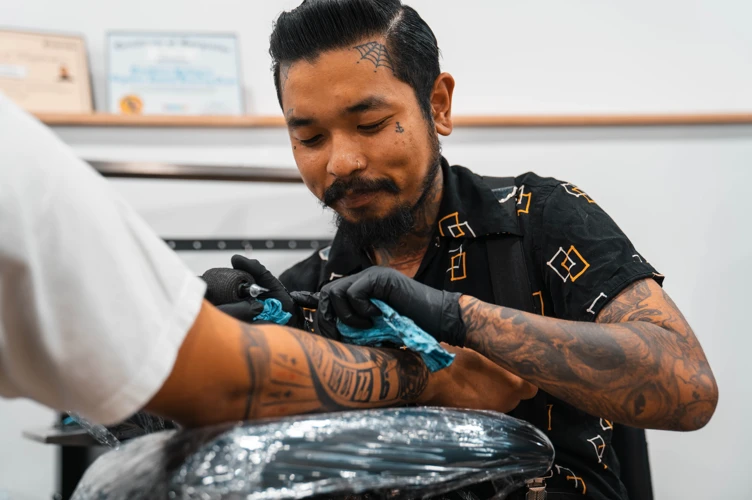
Equipment Quality – High-quality equipment is essential for creating a safe and successful tattoo. Professional tattoo artists invest in the best equipment to ensure their customers’ safety, comfort, and satisfaction. The cost of this equipment is often reflected in the cost of the tattoo.
Tattoo Placement – The placement of the tattoo can also affect the cost. Tattoos on certain body parts, such as the face, neck, and hands, are usually more expensive because they are more difficult to work with and require more skill from the artist.
Size of the Tattoo – The size of the tattoo is a major factor in determining the cost. Larger tattoos take longer to complete, which makes them more expensive.
Colours and Designs – Tattoos with more intricate designs and multiple colours are more expensive than simpler ones. This is because they require more time and skill to complete.
Artist’s Experience – More experienced tattoo artists typically charge more for their work. This is because they are more skilled and have more experience in creating beautiful pieces of art.
Location – The cost of a tattoo can also vary depending on the location. Tattoo shops in major cities or trendy neighbourhoods typically charge more for their services.
Start-up and Operating Costs of the Tattoo Shop
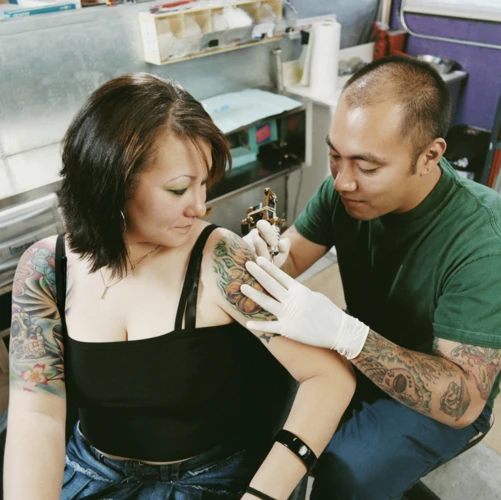
- Rent: Tattoo shops typically need to pay high rent for their premises, due to the fact that they can attract a lot of customers in a short time.
- Equipment: Professional tattoo machines, sterilization equipment, needles, dyes, and other materials can be expensive to purchase, and need to be replaced or upgraded regularly.
- Staff Costs: The cost of hiring and training staff can be high, and in many cases they need to be paid a competitive wage.
- Insurance: Tattoo shops are required to have insurance to cover any potential issues that may arise, such as medical bills if a customer has an allergic reaction to the ink.
- Marketing: Tattoo shops need to promote their services to attract customers, and this can be costly.
- Licensing and Permits: Tattoo shops must be licensed and have permits to legally operate.
All of these start-up and operational costs go into the price of a tattoo, and this is one of the main reasons why tattoos can be so expensive. Additionally, the cost of a tattoo artist’s time and expertise should also be factored in, as these professionals typically charge for the quality of their work.
Local Economic Factors
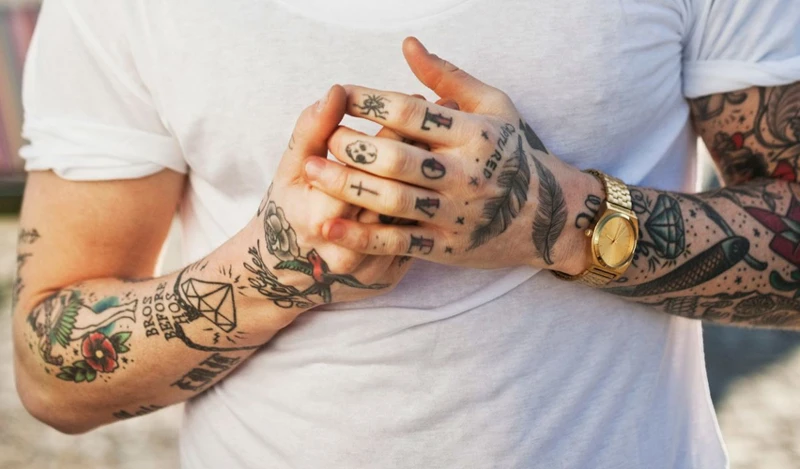
Costs of Living and Rent Prices: The cost of living and rent prices vary greatly across the country. In cities with a higher cost of living, tattoo artists may need to charge more for their services to make ends meet. Additionally, some areas have higher taxes, which may add to the cost of the tattoo.
Competition: In areas where there is a high concentration of tattoo parlors, the competition may drive prices down as each shop tries to undercut the others. On the other hand, if there are fewer tattoo parlors in an area, the prices may be higher.
Supply and Demand: If a tattoo artist is in high demand, they may have the ability to charge more for their services. On the other hand, if the demand is low, they may need to lower their prices to attract more customers.
Income Level of Customers: The income level of customers in an area may also affect tattoo prices. In lower-income areas, the prices may be lower to attract customers who cannot afford more expensive tattoos.
Supply and Demand
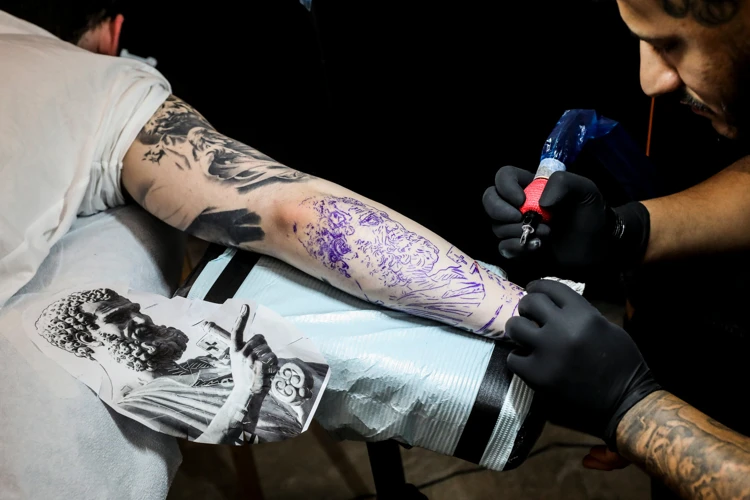
The cost of a tattoo is mainly driven by supply and demand. As the demand for tattoos increases, so does the cost. Tattoos are becoming increasingly popular, so the demand is rising. At the same time, the supply of qualified tattoo artists is limited. This limited supply means that tattoo artists can charge higher prices for their services.
Additionally, the quality of a tattoo can also play an important role in determining cost. Highly experienced and talented tattoo artists are in high demand and, as such, charge higher prices. Similarly, those artists who specialize in more intricate and detailed designs will also charge higher prices, since they require more time and effort.
Finally, the size and placement of the tattoo can also affect the cost. A larger tattoo will take more time to complete and, as such, will cost more. Placement can also affect the price, as tattoos on the face, neck, and hands may require more skill and take more time.
Competition
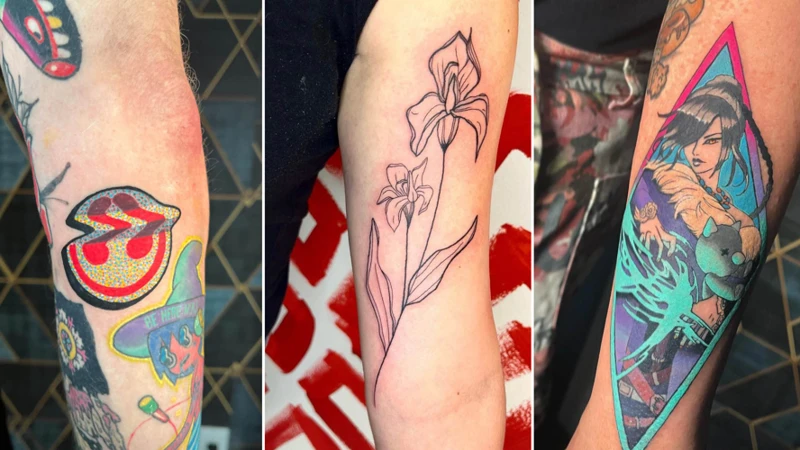
The competition in the tattoo industry is immense. With more and more people getting tattoos, the market has become saturated with tattoo artists, driving prices down. This has resulted in the average cost of a tattoo falling from around $100 to $60 per hour.
- The tattoo industry is highly competitive. With so many artists competing for business, prices for tattoos have dropped significantly.
- The price of a tattoo is influenced by the artist’s skill level. Professional tattoo artists can charge more than inexperienced ones, as their work is of a higher quality.
- The cost of a tattoo also depends on the size and complexity of the design. Tattoos with intricate designs and a lot of detail are more expensive than simpler ones.
The competition in the tattoo industry has caused prices to drop, but not everyone is willing to pay for a cheaper tattoo. People who want a quality tattoo are often willing to pay more for an experienced artist and a better design, which is why why are tattoos so expensive is still a common question.
How to Save Money on Tattoo Prices
Shop around: If you’re determined to get a new tattoo, make sure you search around for the best price. Different studios have different prices, and some may be offering discounts or promotions.
Consider the size and complexity: Tattoos come in all shapes, sizes, and colors, and the price of your new ink will depend on the complexity of the design. The larger and more intricate the tattoo, the more you may have to pay.
Look for a student artist: Student artists in tattoo parlors typically charge less than experienced professionals. Look for a student artist who has just started their apprenticeship and can offer you a discount.
Go for a smaller design: If you’re not set on a large, intricate design, you could save money by opting for a smaller, simpler tattoo.
Look for a special offer: Many tattoo studios offer special offers and discounts throughout the year. Keep an eye out for these deals and you may be able to get a great tattoo at a discounted price.
Try a temporary option: If you’re not ready to commit to a permanent tattoo, there are now plenty of temporary options that you can use to test out a design before you have it inked on your skin.
Frequently Asked Questions
What other factors influence the cost of getting a tattoo?
The size and complexity of the tattoo design can also influence the cost. If the tattoo requires more time and detail, the artist will likely charge a higher price. Additionally, the type of ink and equipment used can have an effect on the cost. Professional-grade equipment and ink can be more expensive, thus raising the cost of the tattoo. Finally, the location of the tattoo studio and the experience of the artist can play a role in the cost of a tattoo. Artists with more experience may charge a higher price for their services.
How can I save money on a Tattoo?
- Shop around – Prices vary widely from shop to shop, so make sure to compare prices before deciding on a tattoo artist.
- Look for discounts – Many shops offer discounts for certain services, such as a certain number of hours of work or a certain amount of money spent.
- Negotiate – Talk to the artist and ask for a lower price. Be polite and respectful, and be sure to explain why you need a discount.
- Do your own research – Look for reviews of tattoo shops online and ask people for their opinion. This will help you find a reputable shop that won’t charge an arm and a leg.
- Choose a smaller design – Bigger tattoos cost more, so choose a smaller design if you want to save money.
- Choose a less complicated design – Complex designs require more time and effort, which means they cost more. Try to find a simpler design that still looks good.
- Choose a less painful location – Tattoos on certain parts of the body take longer to complete, so choose a less painful area to save time and money.
Is it always more expensive to get a large tattoo?
Yes. The size of a tattoo is one of the main factors that determine the cost. Generally, larger tattoos take more time to complete and therefore cost more. This is because the artist has to cover a larger area, work more intricately, and use more ink, all of which add to the cost of the tattoo. However, the cost of a large tattoo can vary greatly depending on the complexity of the design.
- Simple designs are usually more affordable, as they require less work and less ink.
- More complicated designs with intricate details and lots of color may cost more, as they take more time to complete and require more materials.
- The artist’s skill level also affects the cost. Professional artists with extensive experience will usually charge more than amateur artists.
- The location of the tattoo can also influence the cost. Tattoos placed on difficult-to-tattoo areas, such as the neck or hands, tend to cost more than those placed on other areas of the body.
Ultimately, the cost of a large tattoo depends on the size of the design, the complexity of the design, the skill level of the artist, and the location of the tattoo.
Are there any risks associated with getting a tattoo?
Getting a tattoo carries some risks, such as infection and allergic reactions. Other potential risks include scarring, granulomas (small bumps or nodules), and keloids (raised, red scars). In some cases, the ink may spread, leading to a blurred tattoo. If not done correctly, there is also a risk of the tattoo becoming distorted over time. People with certain health conditions, such as diabetes, should consult with a doctor before getting a tattoo.
What are the Benefits of Getting a Tattoo?
- Tattoos can be a great form of self-expression and identity.
- They can also be used to commemorate special events, such as a birthday, graduation, or anniversary.
- Tattoos can help to boost self-confidence and feelings of empowerment.
- Tattoos can be a great way to express your creativity and showcase your unique style.
- Having a tattoo can also be a great conversation starter and can help you to meet new people.
- Tattoos can be a form of self-care, as they can act as a reminder of something meaningful in your life.
Conclusion
Tattoos are expensive due to a variety of reasons, including the artist’s skill level, the quality of supplies used, and the time it takes to complete the work. Additionally, the size and complexity of the tattoo, the location of the studio, and the number of appointments required can all impact the cost. Ultimately, tattoo pricing is based on the artist’s knowledge, experience, and creativity.